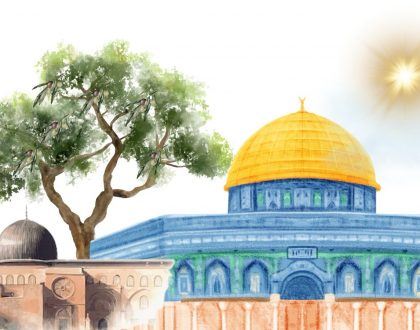Malcolm X – condensed version
by Hana
How many of you recognise this person? [photo of MLK] But what about this person? [photo of Malcolm X]
Despite often being overshadowed by the likes of Martin Luther King, while alive Malcolm X was an important global figure – so vocal and influential that he was assassinated aged just 39. Described by himself as ‘the angriest man in America’, his biographer as ‘the most electric person I ever met’, and by the media as ‘the only Negro in America who could either start a race riot or stop one’, he remains relatively forgotten by mainstream history (although some sixth formers doing history might know a bit about him). Yet his journey is a fascinating one, as he grew from an intelligent young boy into a disillusioned youth, a ghetto criminal, vocal activist, and finally a peaceful Muslim. And since it’s Black History Month, we thought we’d tell you all about him.
Malcolm Little was born in Omaha in 1925. Despite being in the north, slavery nationwide had only been abolished 60 years before, and racism was still so integral, and black people’s poverty so severe, that a black person would be considered ‘successful’ if they could just manage to get a job as a waiter, or boot polishers.
Malcolm’s father, Earl, was a Baptist minister and black rights activist who was targeted by the Ku Klux Klan, as well as other racist organisations such as the Black Legion. One night when he was very young, the family awoke in the middle amid a confusion of gunshots in the yard and their house on fire. They all scrambled outside: ‘I remember we were outside in our underwear yelling our heads off.’ The family feared for their lives, and were forced to move house twice before his father was finally killed in ‘unknown circumstances’. It later emerged that he had been tied across tracks and run over by a car, leaving his head crushed and his body almost cut in half.
The insurance company refused to pay out Earl’s life insurance and the family began to get into debt. Malcolm’s mother had light skin due to mixed ancestry, so people would offer her work, only to take it away when they realised she was actually black. Unwilling to accept charity, she struggled to provide for her six children, several of whom turned to petty stealing just to eat. Unable to deal with her situation, she eventually ended up in a mental asylum, with the children all split up and sent to foster homes.
Finally given stability and enough food, Malcolm excelled. He was so bright that he was allowed he privilege of attending an almost all-white school, where he was top of his class and so charismatic that he was elected class president. He dreamed of becoming a lawyer, but his teacher advised him to become a carpenter instead, telling him: ‘you need to think about something you can be. A lawyer, that’s no realistic goal.’
This was a turning point in his life. Crushed, he began to be more affected by the inherent racism around him, and became so moody that his foster family asked him to leave. Aged fourteen, the boy who was voted class president became a drop-out.
He moved to live with his older sister Ella in Boston, and managed to make a living taking on various low-skilled jobs, eventually finding his way to New York Harlem through working on the railway. He started drinking and doing drugs, eventually getting fired from his job for being too loud and rude. He was seventeen, the same age as a lot of the sixth form, when he started gambling and getting involved in drug dealing, prostitution and armed burglary.
Four years later, aged just twenty-one, he was caught and sentenced to ten years in jail. Even there, he continued betting and buying drugs, and was nicknamed ‘Satan’ thanks to his anti-religious views. By this time, the once shining student had forgotten even how to read and write, so when another inmate suggested he do a prison correspondence course he re-taught himself how to read by learning all the words in the dictionary, and then started to study history and philosophy.
Two years later, he received a visit from his brother Reginald, who told him that the rest of the family had become Muslims and that he, too, should join the ‘Nation of Islam’, an organisation led by a ‘prophet’ named Elijah Muhammad who preached that the white man was ‘the devil’. Malcolm reflected over his life, concluding that all his problems had arisen due to racism and inequality. It was at this point that he dropped his ‘slave name’, Little, and took simply the surname ‘X’. By the way, we would stress that, in case anyone wasn’t sure, this was NOT real Islam – it was a cult.
‘Minister Malcolm X’ soon became a key figure within the organisation. Thanks to his past, he was able to empathise with the people still stuck in ghettos, and began to help them escape and overcome their smoking, drinking and drugs habits. He would speak at universities and in debates, attracting huge crowds and increasing the membership of the Nation of Islam from about 400 to 40,000. During this time, he was also great friends with Muhammad Ali, who at the time was also a member of the Nation.
He described himself as ‘the angriest man in America’, constantly receiving negative press coverage and being portrayed as a figure who provoked hatred. By 1963, when he was thirty-eight, Malcolm began to realise that what he was preaching wasn’t right: not all white people were evil, and acts of violence against any and all white people would not solve the problem. He realised that the way forward was to unite people, not to separate them even more. He also became disillusioned with Elijah Muhammad. By this point X was receiving much more media attention than Muhammad, and as he was pulled out of the public eye it became evident that Muhammad was envious of X’s fame and was really using his position for power rather than for the greater good. It then emerged that far from practicing what he preached, Elijah Muhammad had fathered children by several women who were not his wife. This was the last straw for Malcolm X, who publicly announced his departure from the Nation a few months later.
Now, in an effort to get in touch with his true faith, he performed Hajj, the pilgrimage to Makkah. He was shocked by the racial diversity of the pilgrims, and the equality of everyone there, no matter their social standing. He said, ‘They were of all complexions, the whole atmosphere was of warmth and friendliness. The feeling hit me that there wasn’t really any colour problem here. The effect was as though I had stepped out of prison.’ ‘That morning was the start of a radical alteration in my whole outlook about ‘white’ men.’
When he returned home having experienced this equality, Malcolm X was firm in his faith as a true Muslim. Though he mostly kept his name to Malcolm X, he wrote an open letter to all media outlets which he signed ‘El-Hajj Malik El-Shabazz’ – a more traditional Muslim name – and was referred to as this by many others. He was now even more determined to advocate for equal rights, as he explains in this interview.
Two years later, just as when he was a child, his house was burned down, and he had to run outside with his four daughters and pregnant wife. Once again, his house had been burned down by racists who did not like what he advocated. A few days later, he was shot while standing on a Harlem stage, just beginning a speech, and died from twenty-one gunshot wounds to his chest. He was not even forty years old.
So apart from being an amazing and fascinating story, Malcolm X’s life is hugely inspiring and teaches us so many lessons.
It is the story of a victim of society: an individual who has so much potential, but is not given the opportunity to develop it. Who loses his way, then sinks to utter immorality, but then not only lifts himself out of it, but turns himself around and finally champions the cause of his entire race. It’s the story of a man who can barely understand picture postcards, but who teaches himself to read and can pull crowds of 10,000s people when he speaks. It is the story of someone fighting for the basic human rights of an entire race.
His story also exemplifies so many of the things Islam teaches. We believe that God has given us free will – the potential to be the best that we can, or the worst that we can. It is our choices that determine our fate, and every bad thing that we do makes it easier and easier to keep going.
But even when we make mistakes, it’s not the end of the world. Even when Malcolm X is at the lowest he could possibly be, he is not beyond redemption. In Islam we are taught the importance of keeping good company, because whoever you surround yourself with will inevitably influence you.
And similarly we are told that we have to encourage good in others and discourage bad. It’s not acceptable to close our eyes and let bad things happen around us. We are taught to fight oppression even if the perpetrators are Muslims. We are told to stand up for the rights of others and not to allow ourselves to be treated unfairly.
Islam advocates social justice: everyone is equal. And not just in race, but in wealth – it is the obligation of the well off to look after the poor. Islam is a religion of peace.
So to finish off, we’ve modified Habs tradition to end with two quotations from Malcolm X himself.
‘I am for justice, no matter who it is for or against. I’m a human being first and foremost and as such I’m for however and whatever benefits humanity as a whole.’
‘True Islam taught me that it takes all of the religious, political, economic, psychological and racial ingredients or characteristics to make the Human Family and the Human Society complete.’
Written by Hana Khan in 2016
Recommended Posts

Masjid al Aqsa – why it has a very special place in our hearts
November 29, 2023

Palestine: The Holy Land
November 23, 2023

